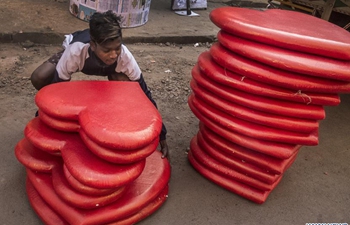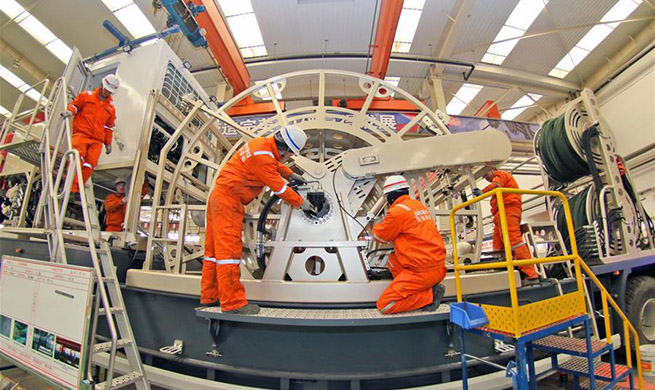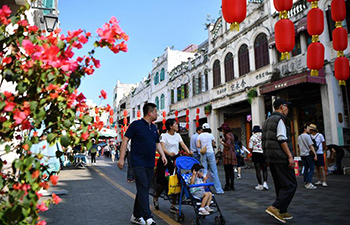PHNOM PENH, Feb. 12 (Xinhua) -- The Cambodian government on Tuesday expressed its regret over the European Union (EU)'s decision to begin the 18-month process that could withdraw Cambodia's preferential access to the EU market under the Everything But Arms (EBA) trade scheme.
"The Office of the Government Spokesperson highly values the positive cooperation between the EU and Cambodia over the past two decades, but expresses disappointment and extreme regret over the EU's decision," a government statement said.
"We believe that this decision is politically motivated," the statement said.
The statement came a day after the EU started the 18-month process that could lead to the temporary suspension of Cambodia's preferential access to the EU market under the EBA agreement due to concerns over human rights and labor rights issues in the country.
Cambodian Prime Minister Samdech Techo Hun Sen said on Tuesday that the country will not exchange its independence and sovereignty for foreign aid and urged countries not to interfere in the country's internal affairs.
"Cambodia cannot depend on foreign aid only and Cambodia will not exchange its independence and sovereignty for anything," he said in a Facebook post.
"But we want to be good friends with other countries who really want to see Cambodia develops further and who do not interfere in the country's internal affairs," Hun Sen said.
In a public speech last month, Hun Sen said the country still survives if the EU withdraw trade preferences for the kingdom.
The prime minister said that he had approved a number of measures to support businesses in the country if the trade preferences were withdrawn.
Among the measures are the deployment of immigration police and customs officials at all border checkpoints to facilitate export and import of goods across the borders.
He said the government would also lower the price for goods scanning and the price for getting customs papers stamped.
The Garment Manufacturers Association in Cambodia (GMAC) said on Monday that a suspension of EBA would increase tariffs by 12 percent in the garment sector and by 8 to 17 percent for footwear.

















